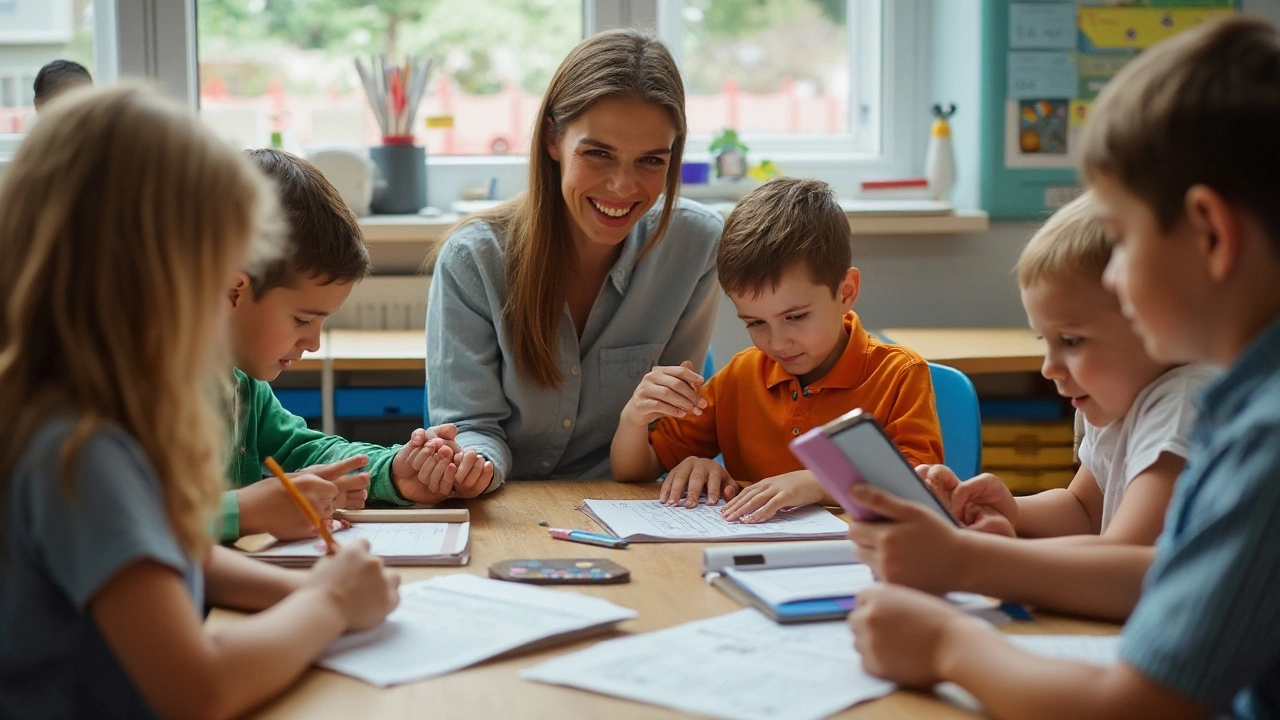Learning Disabilities: Simple Ways to Help Kids Succeed
If your child or student struggles with reading, math, or staying focused, you might be dealing with a learning disability. These are real brain differences, not a lack of effort. Recognising the signs early can make a big difference. Look for things like frequent spelling mistakes, trouble remembering instructions, or losing focus after a short time. Spotting these patterns helps you act fast.
Identify the Signs and Get the Right Help
First step is a proper assessment. Talk to the school’s special education team or a qualified psychologist. They’ll run tests that show where the brain needs extra support. Once you have a diagnosis—whether it’s dyslexia, ADHD, or another condition—you can build an action plan. This plan often includes classroom accommodations, like extra time on tests or using audiobooks, and specific teaching methods.
Don’t wait for grades to slip before seeking help. Even simple observations, like a child avoiding reading aloud, can signal dyslexia. Parents can keep a notebook of behaviours, dates, and situations. Sharing this with teachers creates a clearer picture and speeds up the support process.
Everyday Strategies That Work
At home, break tasks into tiny steps. Instead of saying “Finish your homework,” try “Read page one, then do the math problem on line three.” Small, concrete directions reduce overwhelm. Use visual aids—charts, colour‑coded notebooks, or graphic organizers—to help the brain organise information.
Technology is a big ally. Text‑to‑speech apps let kids hear written words, while speech‑to‑text tools help with writing. For reading, try fonts designed for dyslexia, like OpenDyslexic, and increase line spacing. Online games that focus on memory or attention can also build skills without feeling like work.
Encourage regular movement breaks. A five‑minute stretch or quick walk can reset attention, especially for kids with ADHD. Pair learning with interests—if a child loves dinosaurs, use dinosaur facts for reading practice. Connecting lessons to passions makes the brain more engaged.
Communication with teachers is key. Set up short, regular check‑ins to discuss progress and adjust accommodations. Share what works at home so teachers can replicate strategies in class. Remember, consistency across environments boosts confidence.
Finally, celebrate effort, not just results. A child with a learning disability often feels discouraged, so praising persistence builds resilience. Celebrate small wins—a correctly spelled word, a completed assignment, or a focused study session.
Learning disabilities can be challenging, but with the right tools and support, kids can achieve great things. Keep an eye on signs, get professional help early, and use practical daily strategies. You’ll see progress, confidence, and a happier learning experience for everyone involved.
-
31
- 0
Explore the most common special educational needs, including autism, ADHD, and dyslexia. Understand what they look like and how to support students best. Read more
-
4
- 0
Special needs education encompasses a broad spectrum of individuals, each with unique requirements for learning and growth. The three main categories of special needs include developmental disabilities, learning disabilities, and behavioral/emotional disorders. This article delves into each type, exploring their characteristics, challenges, and strategies for effective education. It provides insights for educators and parents, offering practical tips and real-life examples to enhance understanding and support for children with special needs. Read more
-
25
- 0
Learning disabilities are diverse neurological conditions that impact how students process information. They are not indicative of a person's intelligence but rather the brain's unique wiring. This article delineates seven specific types of learning disabilities. It provides insights into how these conditions affect learning and offers practical tips for parents and educators to support children in maximizing their potential. Read more
Tags Weight
- education
- exam preparation
- study tips
- adult education
- online courses
- adult learning
- lifelong learning
- distance learning
- GCSE revision
- online education
- private tutoring
- special needs education
- scholarships
- remote learning
- scholarship tips
- financial aid
- international students
- effective learning
- e-learning
- education funding



